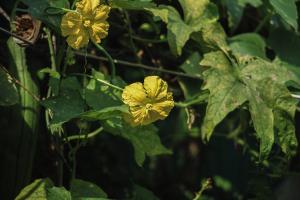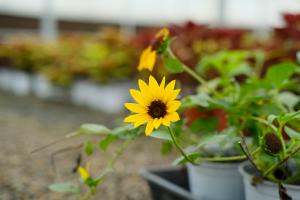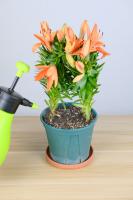Are Fibre Plant Pots Any Good?
If you're looking for an eco-friendly alternative to traditional plastic plant pots, fibre plant pots may seem like a good option. Made from biodegradable materials like coconut coir, peat, or wood pulp, these pots are marketed as a sustainable choice for gardening enthusiasts who want to reduce their carbon footprint. But are they really any good? Let's take a closer look at the pros and cons of fibre plant pots.
Pros of Fibre Plant Pots
One of the main advantages of fibre plant pots is their biodegradability. Unlike plastic pots that can take hundreds of years to decompose, fibre pots can break down in a matter of months under the right conditions. This means that you can compost them along with your soil and plant debris, reducing the amount of waste you produce and returning valuable nutrients to the earth.
Another benefit of fibre plant pots is their water retention. Because fibrous materials are porous and absorbent, they can help to retain moisture in the soil, which is important for promoting healthy plant growth. This can be especially useful if you live in a hot or dry climate, where plants may need more frequent watering.
Finally, fibre plant pots come in a variety of shapes and sizes, making them a versatile choice for both indoor and outdoor gardening. Whether you're growing herbs on your windowsill or planting a tree in your backyard, you can find a fibre pot that fits your needs.
Cons of Fibre Plant Pots
While there are many benefits to fibre plant pots, there are also some drawbacks to consider. One of the main concerns is their durability. Unlike plastic pots that can last for years, fibre pots may start to break down or crumble after just one growing season. This can be frustrating if you're looking for a long-term solution for your gardening needs.
Another issue with fibre plant pots is their cost. Because they are made from natural materials and often require additional processing, they can be more expensive than plastic pots. This may not be a problem for the occasional gardener, but it can add up if you have a large collection of plants.
Finally, not all fibre plant pots are created equal. Some brands may use unsustainable harvesting practices or add synthetic materials to their products to reduce costs. To ensure that you're purchasing a truly eco-friendly option, it's important to do your research and choose a reputable brand.
Conclusion
So, are fibre plant pots any good? The answer depends on your individual needs and priorities. If you're looking for a sustainable alternative to plastic pots that can help to retain moisture in the soil and reduce waste, fibre pots may be a good choice for you. However, if you're looking for a long-lasting and cost-effective option, you may want to stick with plastic or invest in more durable materials like terracotta.
Ultimately, the most important thing is to choose a pot that allows your plants to thrive and fits your personal gardening style. With so many options available, there's sure to be a pot that's perfect for you.

 how many times do yo...
how many times do yo... how many planted tre...
how many planted tre... how many pine trees ...
how many pine trees ... how many pecan trees...
how many pecan trees... how many plants comp...
how many plants comp... how many plants can ...
how many plants can ... how many plants and ...
how many plants and ... how many pepper plan...
how many pepper plan...






























